By MITCHELL KANASHKEVICH, EYEVOYAGE
Can a camera change the way you make photos? Until recently I never thought that I’d even consider such a question. I’ve always said that gear is not very important, the result is what matters. I still feel the same about the importance of the result, but, I’ve come to realise how much the camera that you use can play into the equation.
For most of my photographic life, I’ve been shooting with Canon DSLRs. They’re great, but, they’re heavy and bulky. I’ve never taken them around with me to capture spontaneous, everyday moments and that shaped my attitude towards photography and my body of work as a whole. I feel I missed out on a lot.
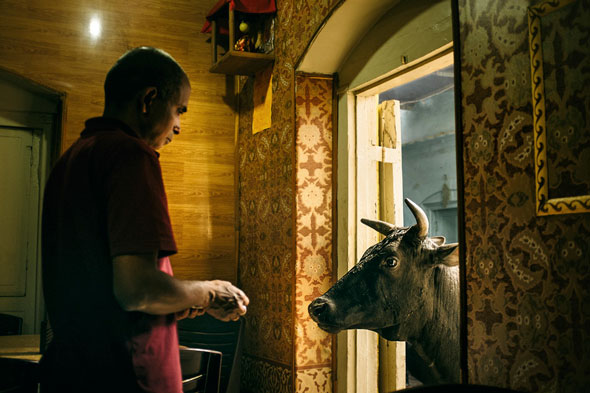
The iPhone Opened Many Photographers’ Eyes to the Possibilities of a Smaller Camera
The iPhone and all the craze behind mobile phone photography lead me and a plethora of other photographers to capturing those random, fleeting moments of life or just the small fascinating things that cross our paths. This is what opened my eyes to how much I was missing out on.
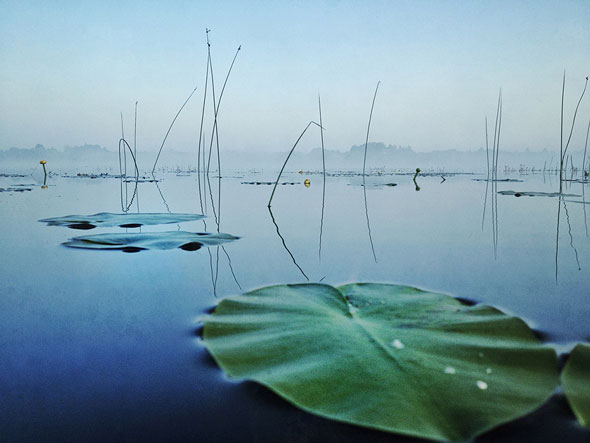
The iPhone was great, portable and with a special case, it was even waterproof. But, as good as it was, it was still pretty far from serious cameras as far as creative control and image quality went. I wanted to have something in the middle – the portability close to a phone and quality close to a DSLR.
After years of watching the development of smaller cameras, which were now claiming to offer quality on par with the bigger DSLRs and were more responsive than ever, I purchased a Fuji x100s a year ago. The Fuji x100s became my favourite camera. I took it with me everywhere I went. It was portable and discreet. I could shoot with it in places and hardly be noticed, while a DSLR would and did by contrast draw unwanted attention.
Did the Smaller Cameras Change the Way I Photographed?
I think it’s an easy answer – Yes! Having the portability of a camera that can go anywhere and the creative control of the larger DSLRs meant that I could create images at almost any time, in almost any place. The whole world as a photographic subject became a little more accessible and little more ready to be captured. Anything could potentially be turned into an interesting photograph, because I was more ready with that little camera in my hand.
Also important, was the discreetness factor. Not because I wanted to hide from people, but, because even if they did see me, they did not perceive me as a tourist or a serious photographer. They went on about their lives. I remember in Istanbul, I went to the same neighbourhood to shoot with the Fuji and later, with a Canon 5D MKIII. Unnoticed with the Fuji, but, instantly called out to “Tourist!” when I took out the DSLR.
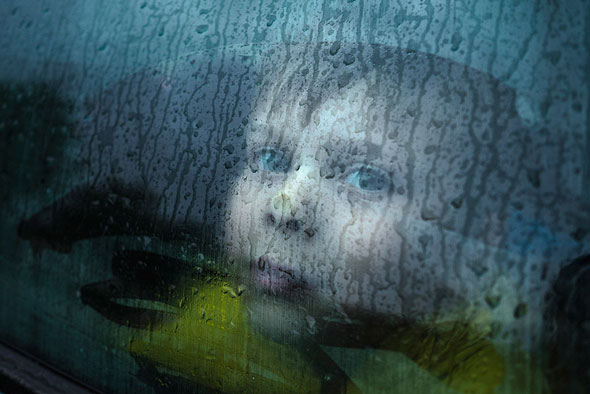
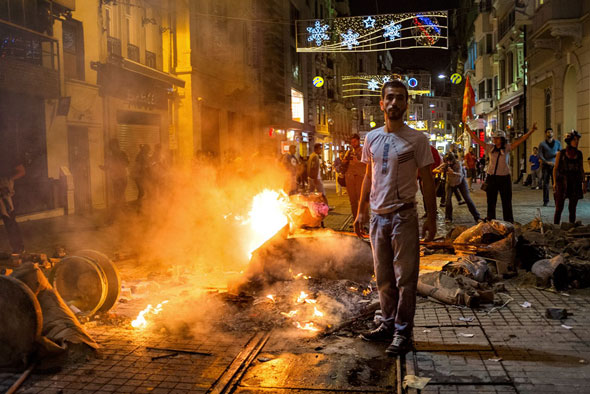
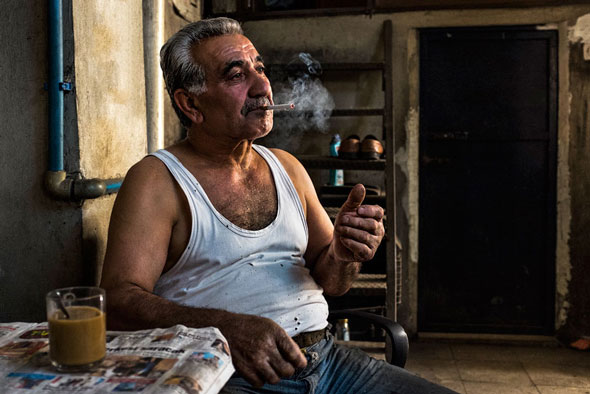
There’s something else that was huge for me about the Fuji x100s and adds to the discreetness of it – the virtually silent shutter. The clickety-clack of the DSLRs sounds almost vulgar in a small, quiet room, a church or a sacred place. The silent capture sometimes made my subjects completely unaware of me photographing them, or at least, not aware of when I was actually taking the photo. In general, they became less uneasy or, less curious about what I was capturing with so many of those clicks.
Here’s a great example of the silent shutter benefit. A photograph taken in a nomadic Islamic school, called Mahardara in Mauritania. The kids were reciting the Qu’aran, I kept shooting throughout. They weren’t very loud, so, shutter clicks would definitely get their attention, I’d likely distract them, which is not what I wanted at all.
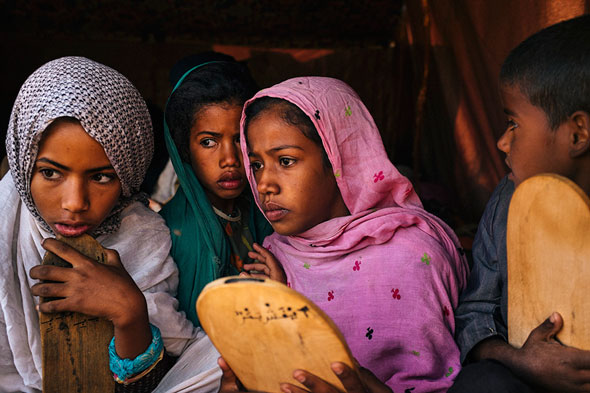
Innovation Doesn’t Stop — Another Change of Camera
I’m not advertising any cameras in this post, I’m merely mentioning the brands which I’ve been using. I don’t have brand loyalty and so, a month ago, I got another little camera, the Panasonic GX7. I’m not usually one to buy a camera every year, but, when I saw what it could do, I had to get it. I won’t get too deep into the capabilities, there are plenty of reviews and, I might make one on my blog later. The main things though, are again, the silent shutter, and this time, a touch screen that flips out. The fact that the screen flips out means that you can be even more discreet, which is awesome, but, the touching on the point where you want to focus is a god-sent feature. It’s quick and it improves the accuracy a LOT.
Again, the question, “Does this change the way one makes photos?” And again YES is the answer. If you can nail the focus more often in those unpredictable situations, you’re more likely to shoot in them. Hence, you’re more likely to improve and will lean towards taking more of those kinds of shots, hence somewhat reshaping your body of work.
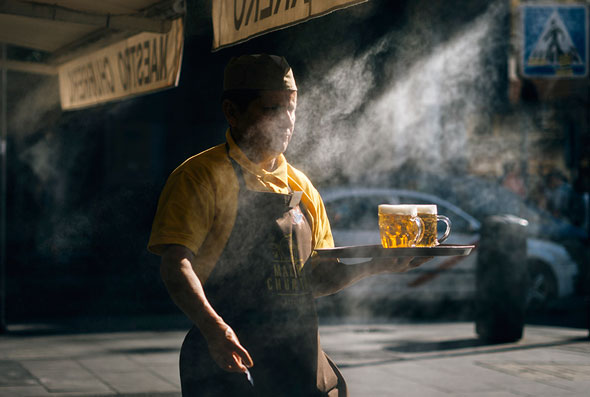
Some Conclusions
I’ve raised the main points I wanted to raise. When your image making tool becomes not only powerful, but, portable, effective and fun to use, you’ll undoubtedly make photos differently. I’ve come to appreciate the spontaneous, the overlooked moments of life and I’ve decided to make that sort of stuff a larger part of my body of work.
On a personal note, as a new father, I’m particularly appreciative of having these smaller cameras by my side virtually all the time. Beyond all the art making and serious photography, there’s the simple and pure desire to record your own life and what matters to you, whether it is on the road or at home. Having a powerful, small camera that allows for the art and for the records of precious memories is nothing short of awesome and even life changing… Well, at least as far as photography goes.
When a camera is fun to use, you start playing around, exploring, experimenting and sometimes, that’s when some truly great photos are made. There are no guarantees, but, if you’re trying and doing you’re at least giving yourself a chance.

Okay, so, What’s the Point of This Post?
Let me make something clear. I am not trying to convert anyone. I don’t care if you love your DSLR and hate the smaller cameras. As I’ve mentioned, I’m not sponsored by anyone, so, I don’t benefit in any way if you switch or don’t switch, or whatever. The aim of this site in general, is to educate fellow travel photography enthusiasts about photography, travel and about what’s out there.
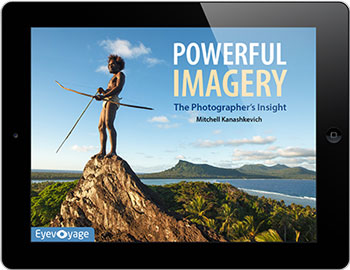 My belief is that smaller cameras are amazing for travel photography. They have, as clichéd as it sounds “Changed the game” and a lot of interesting opportunities have arisen as a result.
My belief is that smaller cameras are amazing for travel photography. They have, as clichéd as it sounds “Changed the game” and a lot of interesting opportunities have arisen as a result.
A Question for You:
What do you think about the topic? Do you think a camera is capable of changing the way you make photos and shaping your work as a result? Have you perhaps already come across a camera like that? Or, is this all nonsense to you?
This article first appeared on EyeVoyage, the Net’s probably best resource for travel photography enthusiasts around the world. Check out their ebook Powerful Imagery.


